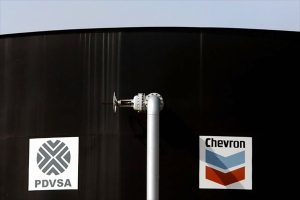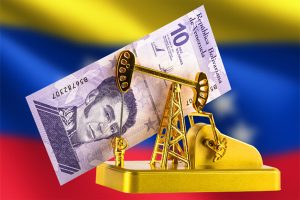
By Kiana Wilburg/Kaieteur News
GEORGETOWN
EnergiesNet.com 12 28 2021
Just over a week ago, Guyana observed its second anniversary as an oil producing State. For the most part—particularly from the stage of discovery in 2015, to first oil in December 2019—the David Granger administration held the reins of office and there were great expectations about what it should, or could have put in place to ensure the effective governance of the sector.
Longstanding politician, Carl Barrington Greenidge, who served as Foreign Affairs Minister and Foreign Secretary, under the Granger government recently acknowledged that indeed, more should have been done. In an exclusive interview with Kaieteur News, he said one of the key mechanisms Guyana ought to have had in place was an ‘Oil and Gas Master Plan.’
Greenidge, who now serves as Advisor on Borders said, the consequence that grips Guyana in the absence of this plan, is infrastructural chaos which ultimately hinders the control the State should have had to begin with. As such, he predicts, with the money now flowing, matters will only get worse.
The former Minister provided this conclusion in a detailed 25 minutes response, when Kaieteur News asked for his take on the coalition A Partnership for National Unity, Alliance for Change’s (APNU/AFC) performance with the oil sector, and perceptions that the party should or could have done more to promote good governance of the sector.
Greenidge quickly retorted that there are two aspects to the question that have to be addressed. The first issue, he said, is that citizens need to bear in mind that petroleum production, or a country becoming a petroleum producer, is not a process that suddenly endows a nation with magical characteristics.
The Advisor on Borders said, “if you came upon a product such as the earth metals or uranium for which market prices are dramatically high, you would experience challenges that are similar with having petroleum and the first of those challenges is, in my view, to have a vision… if you don’t have a vision, you will go where a chaotic market takes you and where chaotic actors in the community take you.”
The former Finance Minister said, he had spoken to the David Granger Cabinet ad nauseam, about the importance of having a master plan for the sector, while stressing the need for the country to heed the lessons learnt by nations like Papua New Guinea and Equatorial Guinea which planned ahead for oil and gas.
“Both nations paid attention to the importance of putting in place, planned cities and if you look at the last Cabinet, minutes of the previous administration you would see, as I was saying, people got tired of me talking about this and nothing of consequence was done to fix this and we will pay a price for it,”
expressed the economist.
He said managing an oil economy is not just about the accounts or looking to see if $1B as opposed to $500M is coming in.
The economist said, it also has to do with how the oil money is spent, how the authorities deal with human resources, and how they establish institutions that can help set national priorities and implement them.
Due to poor planning, the economist said, many are seeing the consequences now unfolding in the form of infrastructural chaos that has gripped Guyana.
Expounding on this front, Greenidge said that along the east bank corridor which now houses an oil and gas business hub, serves as a prime example of the chaos he speaks of.
The former Minister said, “along the east and west banks of the Demerara River; you have a lot of economic activities which are central to the economic well-being of Guyana …Sugar is exported from the river; rice, bauxite come down the river and you have other products coming from the interior through Linden etc. So that is transport movement.”
He added, “now, if that is disrupted or slowed, it imposes a cost on the country and has implications for your competitiveness …so you always have to keep an eye on it. If the rivers are not deep enough or the channels are too shallow, it will affect the industry and so you have to pay attention to these things and plan accordingly. We have also seen the chaos that takes place on the roadways due to the absence of planning for where key support infrastructure for the oil sector should be.”
He posited, perhaps post 2020-ministers had it in their minds how they were going to fix this conundrum. Greenidge stressed nonetheless, that the public is entitled to know what those physical plans of action are.
“As you probably recall, I spent some years as the Chief Planning Officer of this country and I cannot imagine that a country which came relatively early in planning in the region, where even in 1979 or 1980 we had a social and nutrition plan which was way ahead of other places in the region and now, we are operating as though we are novices in this area,” expressed Greenidge.
The former Finance Minister added, “…the reason I am speaking about this and why I am concerned, is because it is not enough for ministers to have these things in their minds. Physical planning on the scale that we are required to do has to be exposed to the public, so that you can collectively look at the plans, the requirements, the dangers and so forth so.”
Greenidge said, what Guyana is experiencing with the choking of the roadways is not merely a problem of the need for another bridge.
He said, it also concerns what is being allowed to take place along the rivers too. In this regard, Greenidge pointed out that several local businessmen are anticipating that the oil companies will pay billions of dollars for shore base lands, and so they are busy clearing the way for sales.
According to Greenidge, “you don’t want the entire Demerara River converted to a place where you are keeping pipes for oil companies or both banks of the river are monopolized by one or two oil operations. That is craziness! And that is what is going to continue to be unless action is taken to put in place a physical plan.”
Greenidge said his views are not meant to be an attack on anyone. Be that as it may, the economist said it is crucial that the country recognizes the state it is in and gets into corrective action now.
By Kiana Wilburg from Kaieteur News
kaieteurnewsonline 12 28 2021








